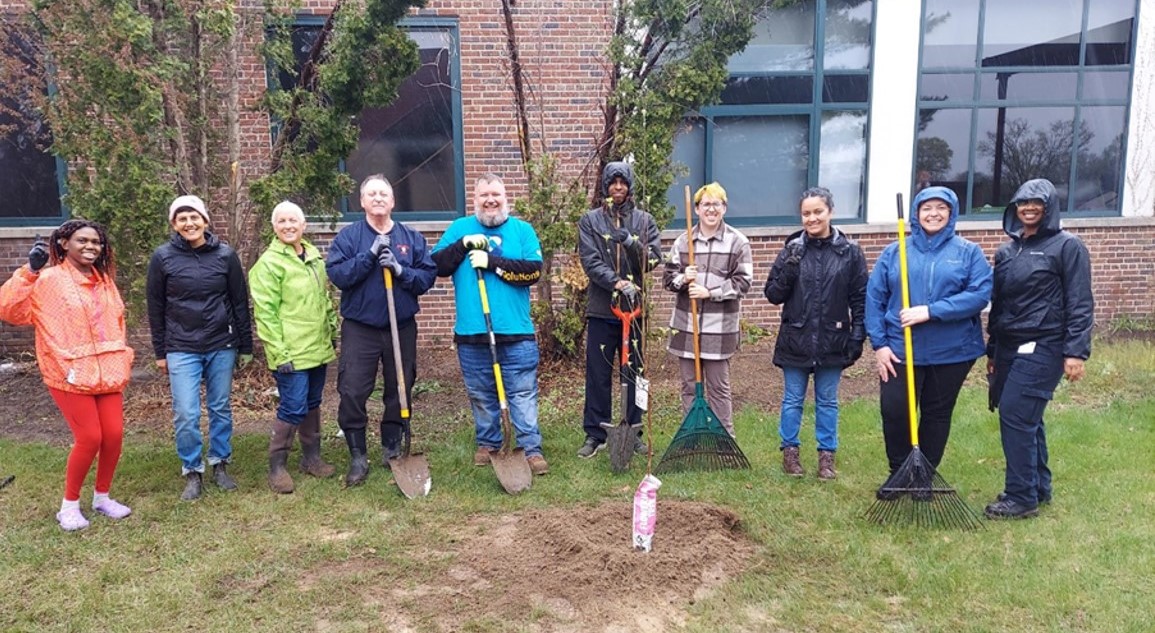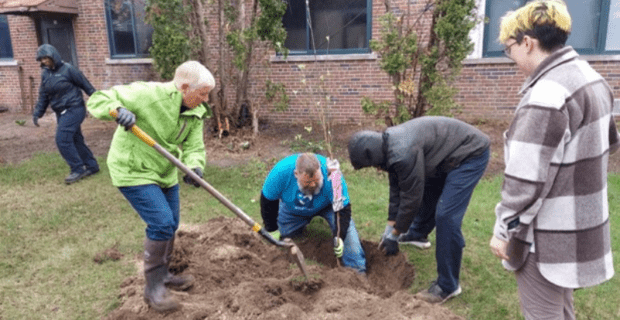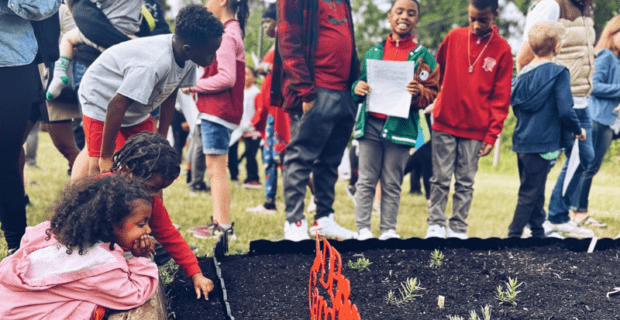We have much more to do and your continued support is needed now more than ever.
The Multidimensional Impacts of Eco-Green Gardens and Beyond

While diverting excess rainwater and increasing native habitat, Eco-Green projects are also providing school communities a place of learning and healing.
In 2023 we saw the warmest year on record (NOAA). In the Midwest, this has led to increased amount of heavy rainfall that floods aging combined sewer overflow systems and/or creates runoff. Young people are working to mitigate the effects of a changing climate, as they are faced with a present and future characterized by increased extreme weather events. Some of this work is happening through the Eco-Green Program, a STEM and climate education collaboration between General Motors and the National Wildlife Federation.

Students at Achieving College & Career Education (ACCE) High School in Ypsilanti, Michigan recently designed a healing rain garden—featuring native plants—that also serves as an outdoor classroom and resting space. The process of designing, building, and adding a memorial helped students transmute their grief while also having a positive impact on stormwater runoff at their school campus.
“50-75% of our students have lost a caregiver, parent or sibling in the last few years so the grief for them is very real. The idea for the garden came from them.”
Ms. Lauren Fardig-Diop
At Detroit Prep, students have been working with their neighbor, Mr. Willie of WJP Urban Farms, to grow food in their neighborhood and develop an on-campus native garden. WJP Urban Farm is an educational laboratory that works with young people in sustainable agriculture by restoring vacant lots from blight and creating fertile urban farms that are used to regenerate the neighborhood and feed the local community. Through Mr. Willie’s classroom workshops, Detroit Prep students learned about the lifecycle of a plant, as well as its care, and then connected their work to hands-on experience during farm workdays and lessons.

Additionally, students were able to take their growing knowledge and apply it to a new project— building a native pollinator garden on their school campus. This shows that community partnerships are paramount to making a positive impact in the local community.
This year both ACCE and Detroit Prep are continuing to expand the work they started with their respective gardens, and the Eco-Green program has now expanded to Toledo. The Aerospace and Natural Science Academy of Toledo plans on growing out native plants and Buckeye trees to plant on campus to share with their neighboring elementary school and community. And Bowsher High School plans to expand their food garden and use the produce in their cooking classes, educating students about whole foods.
These projects have diverted rainwater for sustainable use, increased local pollinator populations, provided healing spaces, and increased native plants all while positively impacting students’ lives. The Eco-Green program continues to support twenty schools through the Midwest and beyond in designing and implementing environmental learning and climate action projects.
Learn more about NWF’s Eco-Green Program!





















